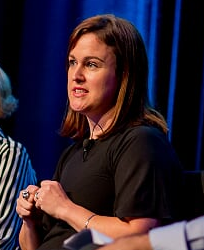Crisis management part of the new travel marketing mantra
Crisis management has moved from a peripheral issue for travel marketers to a daily requirement as they wrestle with everything from flight delays and cancellations to terrorist incidents and aviation disasters, the industry has been told.
Katherine O’Neill, head of marketing at Trafalgar, said crisis management had become an important measure of a business’ success in the modern age.
“You really see true brand strength when you see a brand that can manage a crisis well,” O’Neill told the Mumbrella Travel Marketing Summit.


